-
Advocacy Theme
-
Tags
- Abortion
- Adoption
- Caregiving
- CEDAW
- Disability
- Domestic Violence
- Domestic Workers
- Harassment
- Healthcare
- Housing
- International/Regional Work
- Maintenance
- Media
- Migrant Spouses
- Migrant Workers
- Muslim Law
- National budget
- Parental Leave
- Parenthood
- Polygamy
- Population
- Race and religion
- Sexual Violence
- Sexuality Education
- Single Parents
- Social Support
- Sterilisation
- Women's Charter
Minor Inconveniences: Transnational Families Comics by jhawnette
December 18th, 2020 | Children and Young People, Family and Divorce, Migration and Trafficking, News
Singapore is home to more than two million migrants, including those who have married Singaporean citizens and who are parents to Singaporean children. In the last few years, around one in four of all citizen marriages has been between a migrant (excluding Permanent Residents) and a Singaporean citizen. Women make up more than 70% of these migrant spouses.
Without Permanent Residence or citizenship, migrant spouses have limited rights and access to social benefits.
For International Migrants Day this year, we collaborated with artist jhawnette to create “Minor Inconveniences”, a series of three comics that depict the everyday dilemmas, anxieties and inconveniences that transnational families navigate. These stories are amalgamated from interviews AWARE conducted with close to 40 members of transnational families, including those with female migrant spouses, male migrant spouses and teenage children of migrant spouses.
Through these comics, we shed light on the unique challenges that these migrant spouses and their families face in building their family lives in Singapore, with the hope of creating more understanding and empathy towards their situations. We also present policy recommendations to support the rights of migrant spouses.
COMIC 1: Day trip to JB

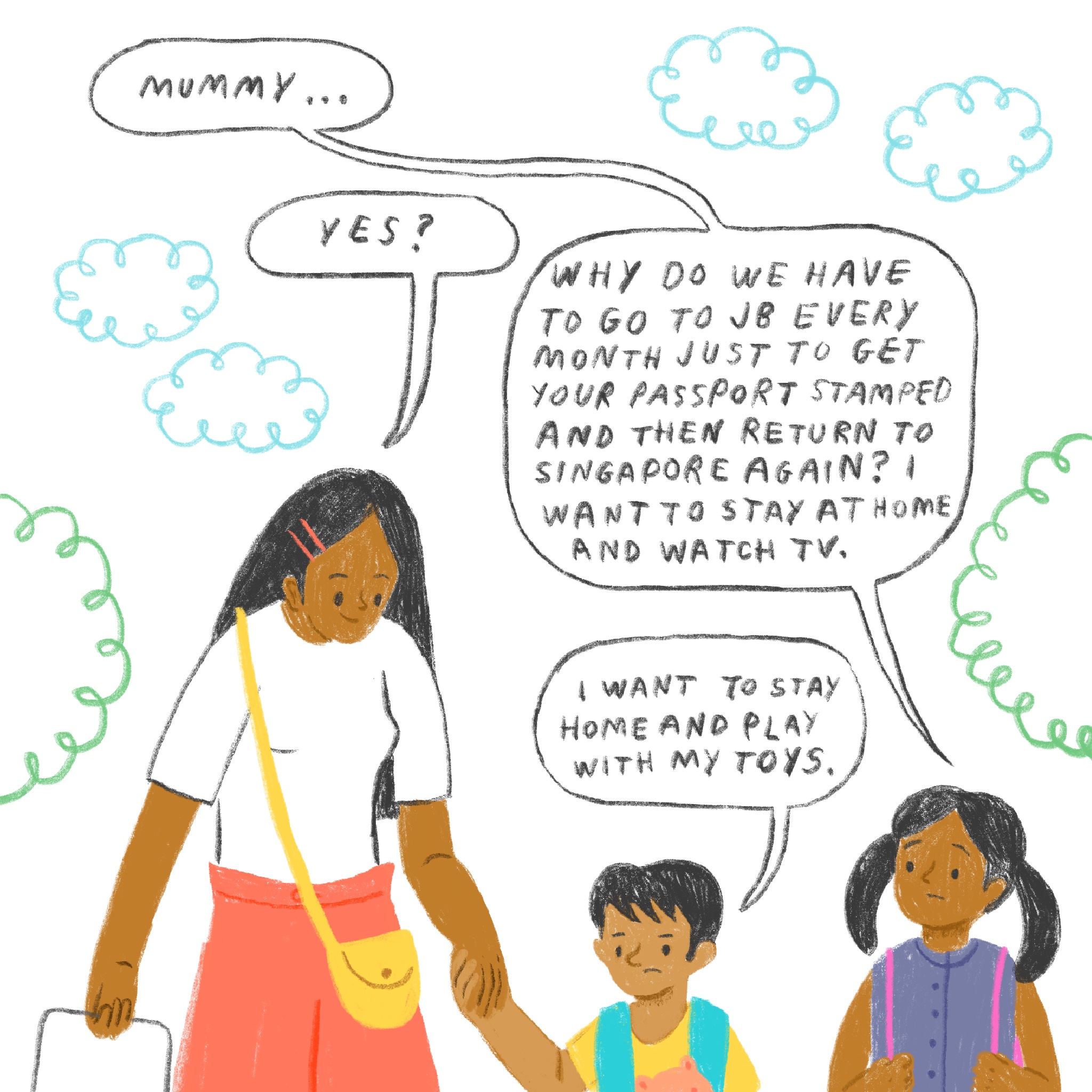
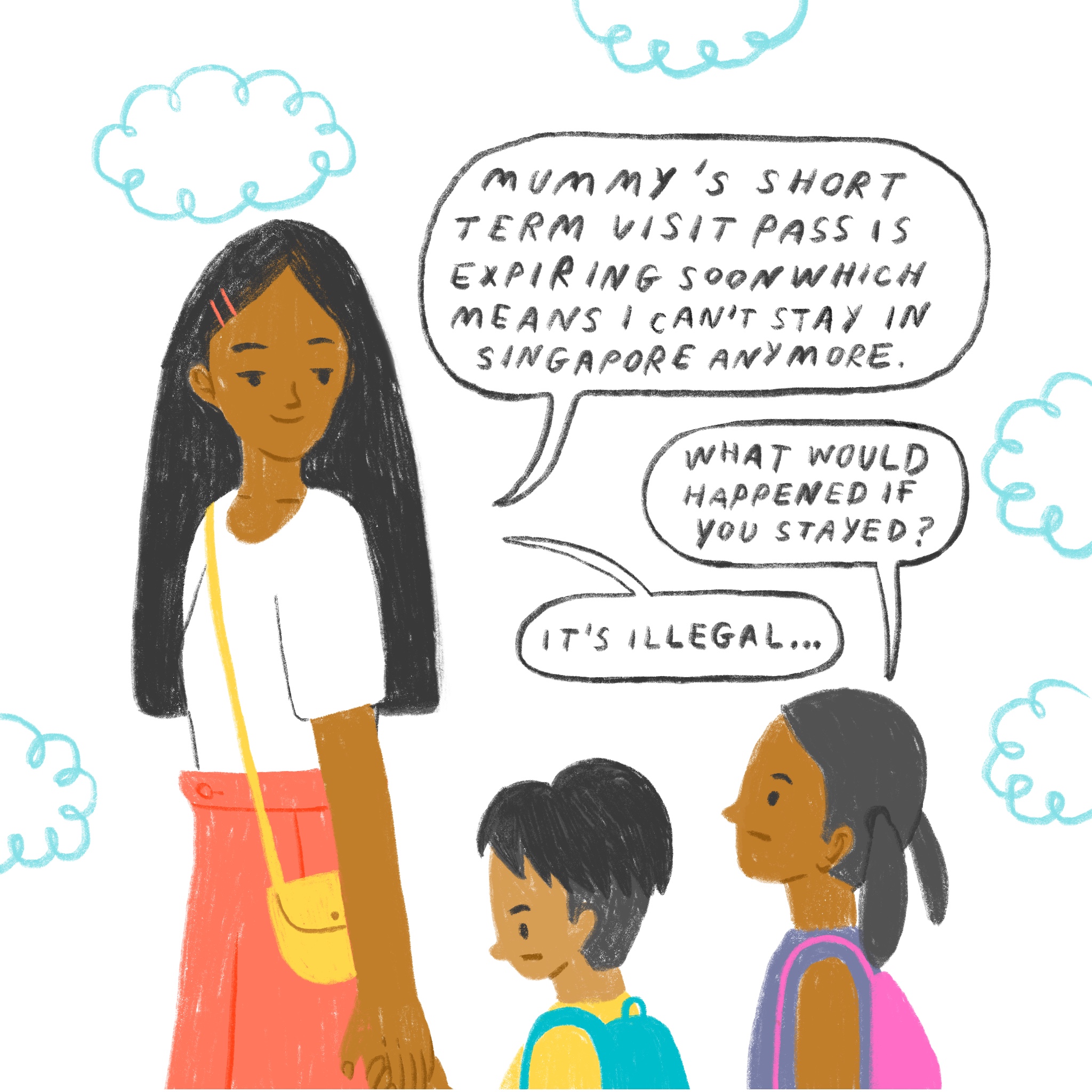
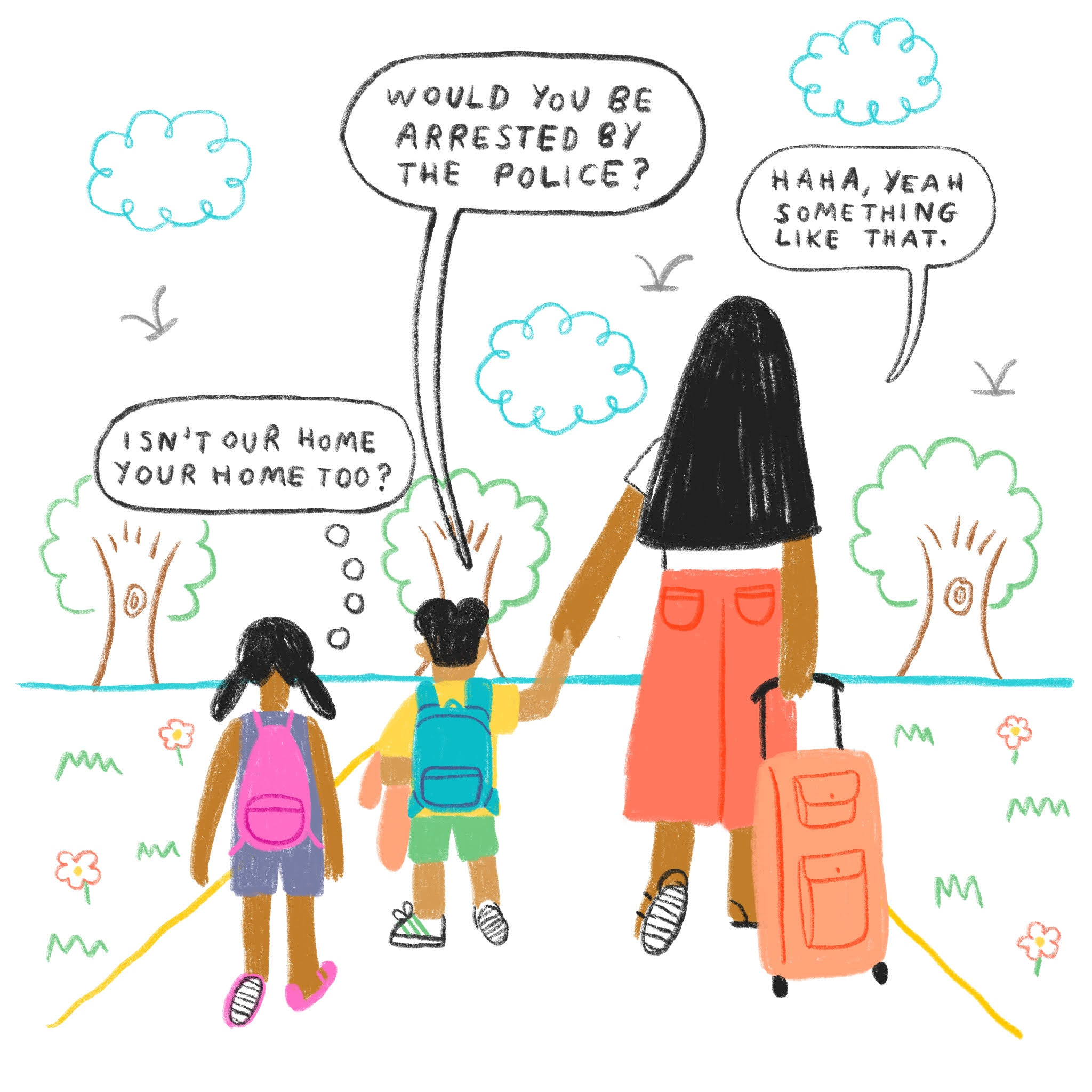
Uncertainty is a constant for many transnational families. Parents and children live in fear of separation, as the migrant family member has no guarantee of their right to reside in Singapore.
Migrant spouses can apply for a Long-Term Visit Pass (LTVP), valid for 1-3 years, after they are married to a Singaporean citizen. However, the eligibility criteria is opaque and the successful renewal of the pass is not guaranteed. Reasons for failed applications are not usually made known to the applicant. Unless they qualify for an employment-based pass, the failure to secure an LTVP results in the migrant spouse having to be on a short-term visit pass (SVP). These are valid for 30 days (up to 89 days upon renewal).
Uncertainty over immigration status causes a great deal of stress for migrant spouses, many of whom report feeling anxious, worried and frustrated when they run into trouble renewing their pass and dealing with ICA. The opacity of the eligibility criteria also leaves some feeling resentful and bitter towards the system – perceived to be arbitrarily rewarding some families over others.
We recommend that:
- Eligibility criteria for LTVP/+ and PR be made clear and transparent; OR
- LTVP+ is granted to all migrant spouses of citizens; AND
- PR status is granted to all migrant spouses upon the birth of their citizen child or the death of their citizen spouse, or (at latest) after three years on the LTVP+. Make citizenship available to all such PRs after a clearly defined and transparently published period.
COMIC 2: Clara’s baby



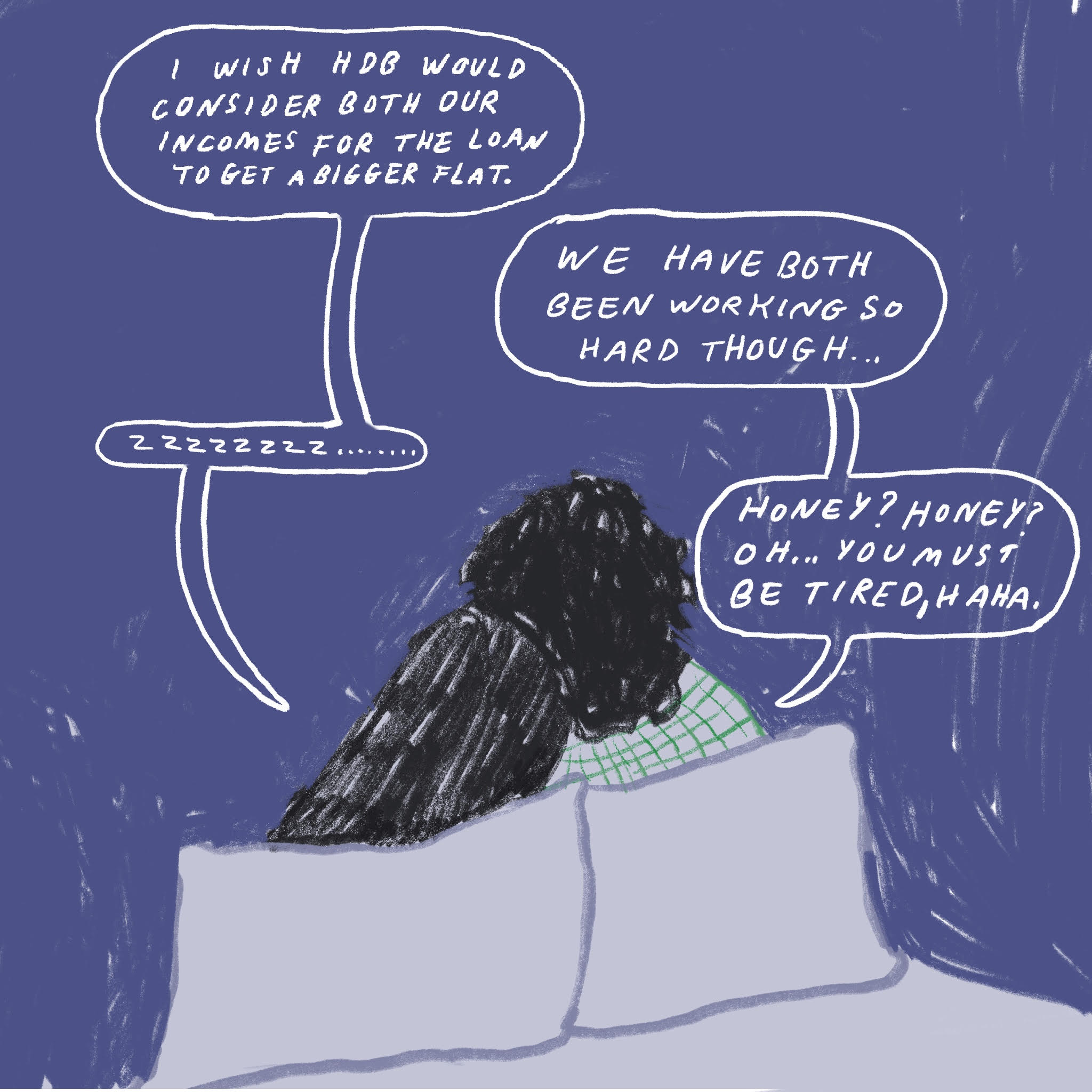
Housing is a fundamental right. Yet transnational families have limited options as they are barred from applying under most public housing schemes. Citizens married to non-PRs can purchase HDB flats, but they are treated as singles for the purposes of housing grants, and migrant spouses cannot be co-owners. This makes the purchase of housing more expensive.
As shown in the story, HDB only takes the flat owner’s income into consideration when determining its loan quantum. The migrant spouse’s income will not be considered, since they cannot be co-owners. It is thus difficult for couples to purchase a bigger flat as they cannot secure a high enough HDB loan amount to finance it. HDB has said that it exercises flexibility and considers appeals to use the occupier’s income for computation of loan on a case-by-case basis.
Transnational couples also do not generally qualify for public rental housing, since applicants under the Family Scheme must include at least another Singaporean citizen or PR in their “basic family nucleus”.
We recommend that:
- Housing access be eased, with clear, timed routes to PR.
- Citizens married to LTVP/+ holders qualify for public rental housing under the Family Scheme.
COMIC 3: Lunch break
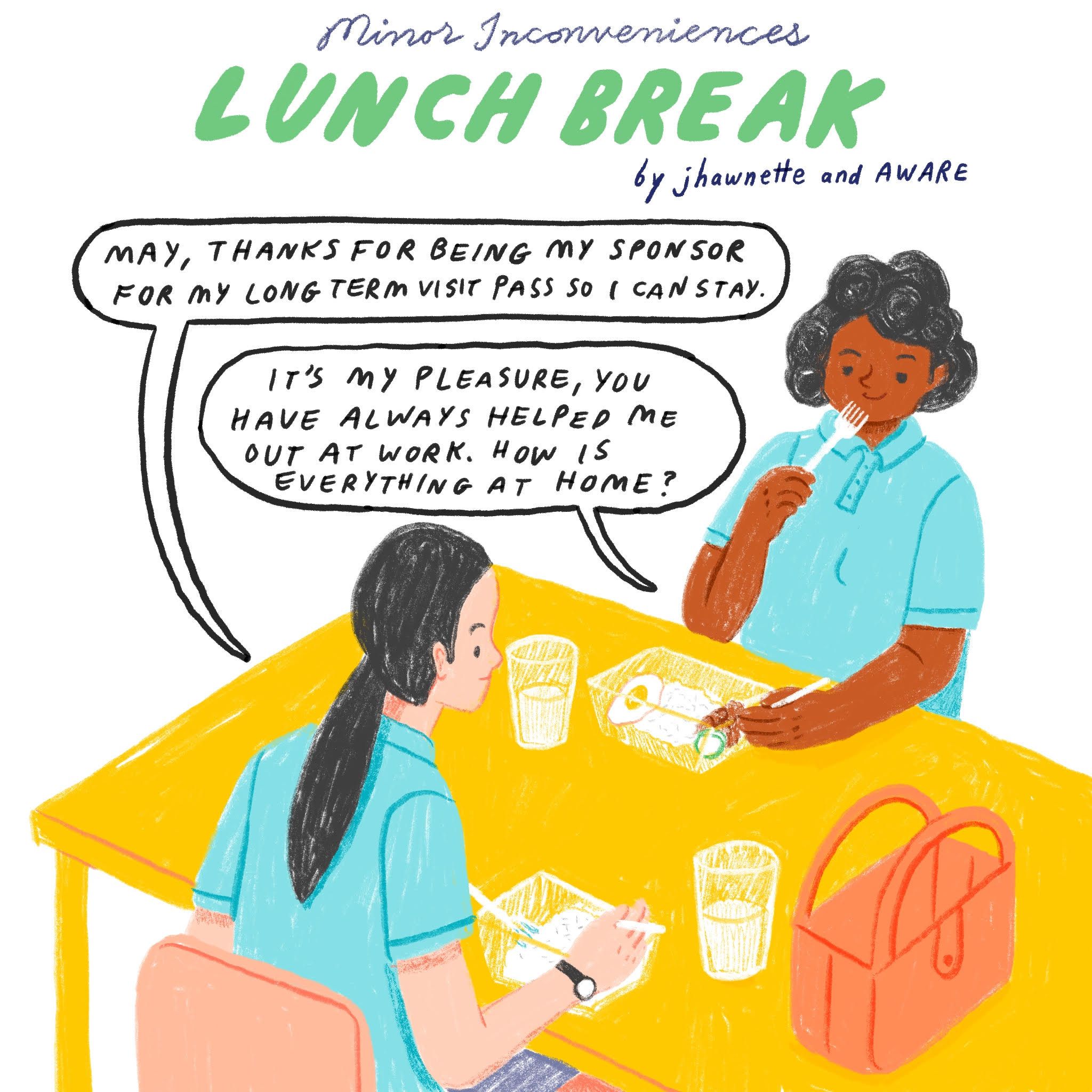
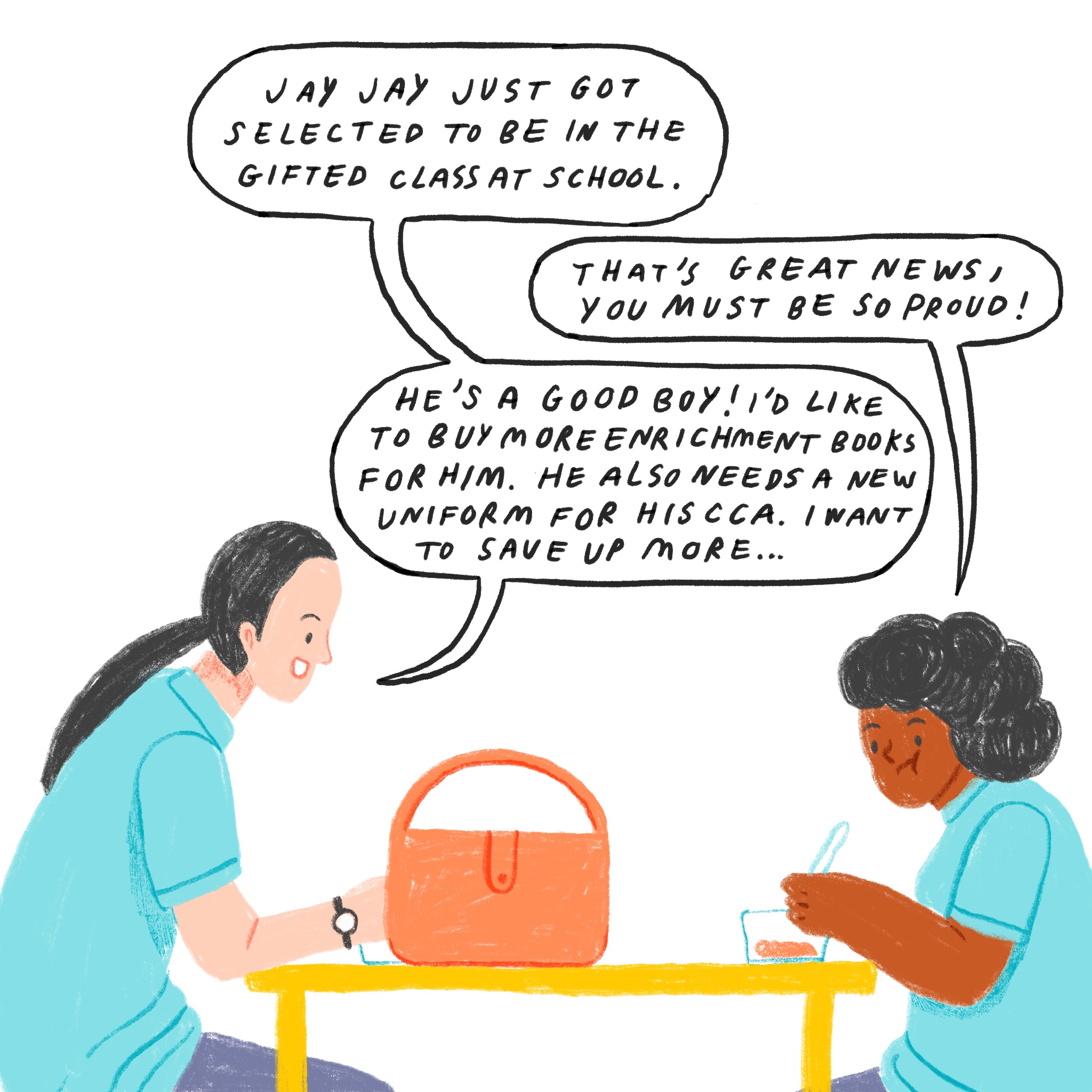
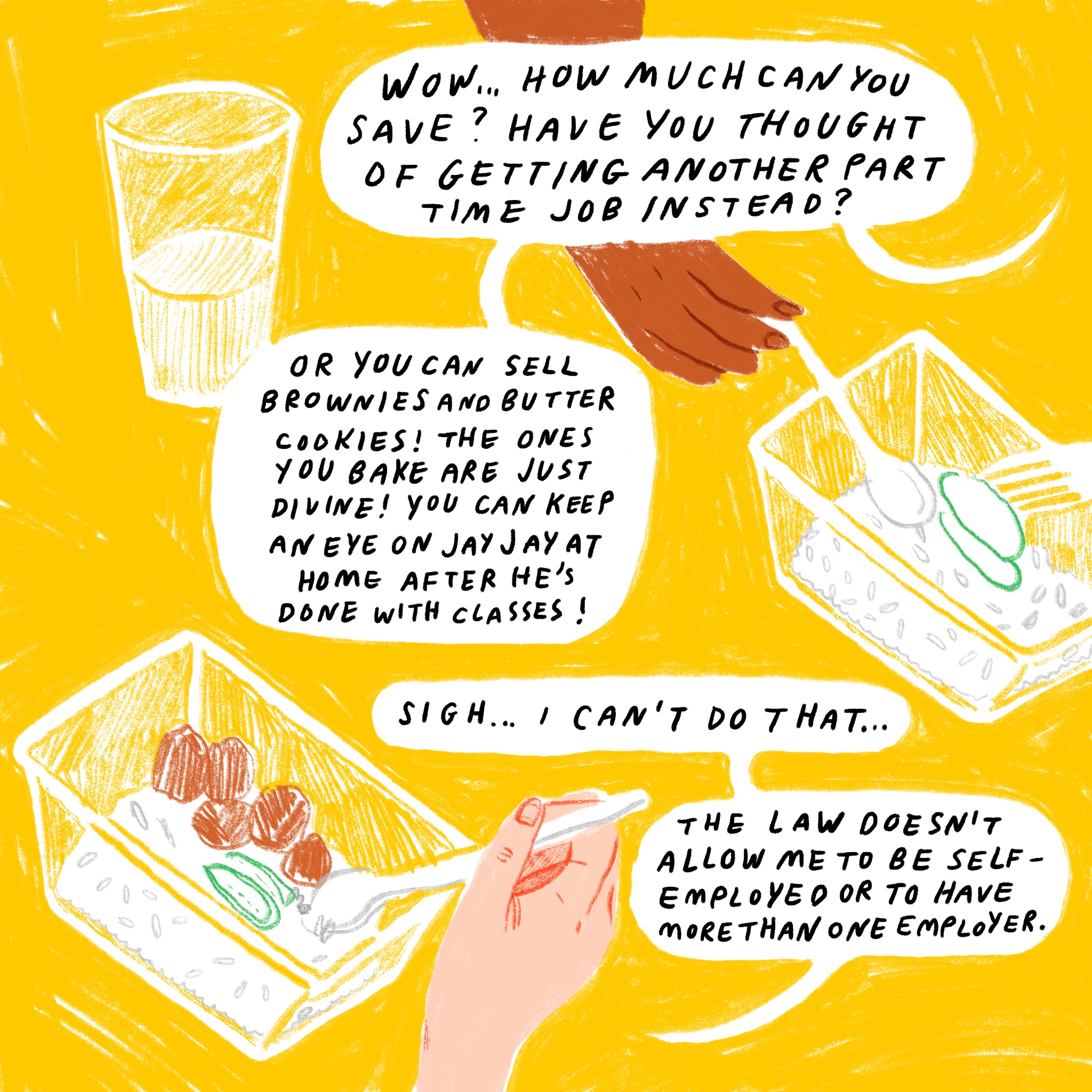
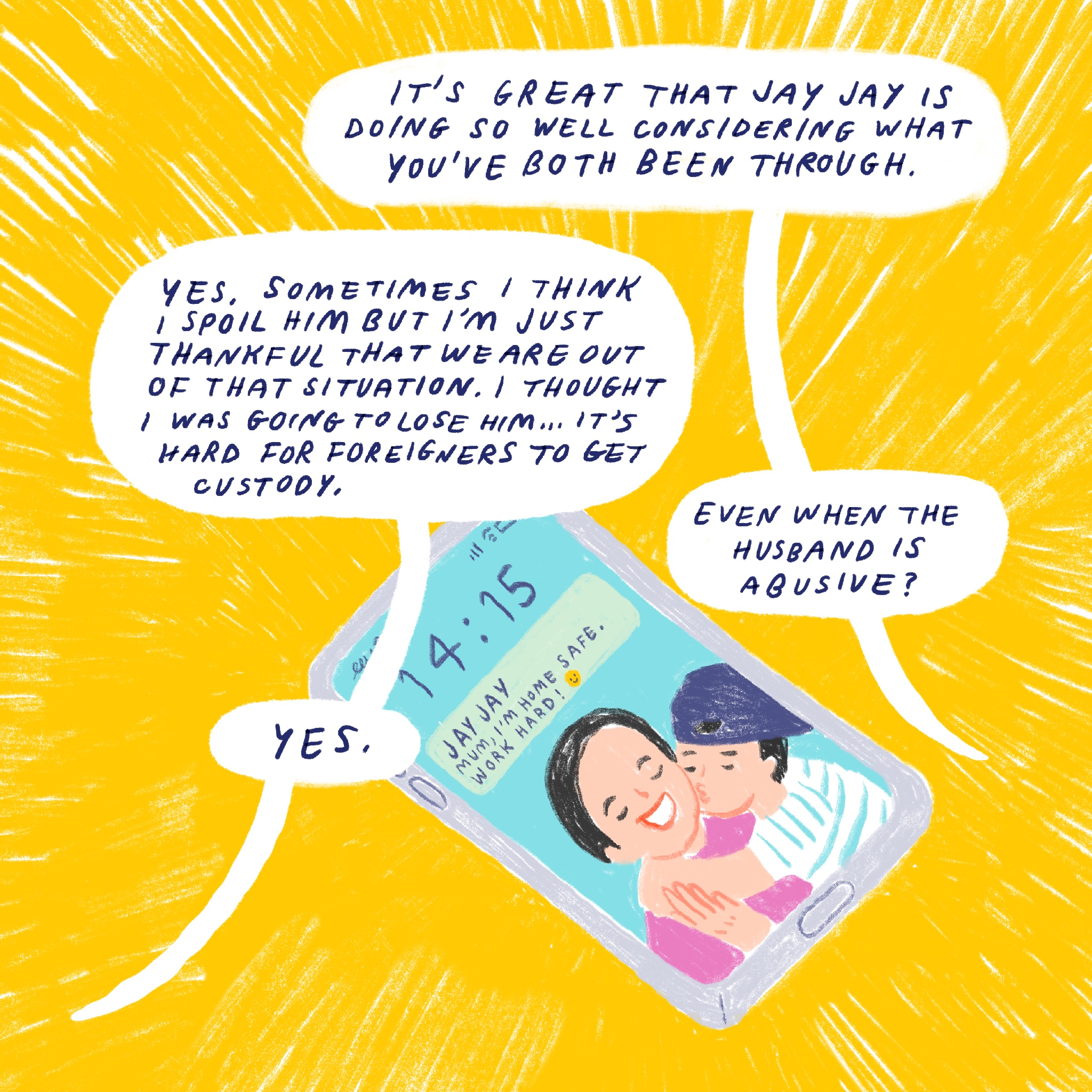
Migrant parents want to do the best for their children, but it can be difficult when access to paid work is limited. They have no automatic right to work. Those on LTVP/+ would have to first secure a Letter of Consent (LOC) or Pre-approved Letter of Consent from the Ministry of Manpower before they can start working. Those on short-term visit passes cannot work.
LTVP/+ holders can only have one employer at a time. They cannot, for example, take on two part-time jobs. They are also not allowed to be self-employed. This is especially challenging for mothers, who often need the versatility and flexibility of part-time jobs or self-employed work so they can juggle caregiving. The income from one part-time job may not be sufficient to support their families.
The story here also alludes to the difficulties that migrant spouses face with divorce and securing care and control of their Singaporean children. To begin with, they may not even be in the country to contest divorce claims, if their divorcing husbands stopped renewing their LTVP/+ and they are forced to leave Singapore. Migrant spouses also have limited access to legal aid, since most schemes are limited to Singaporeans.
Compared to Singaporean mothers, migrant mothers are less likely to obtain (1) joint custody or sole custody and (2) care and control of their Singaporean children. Nationality is one of the factors that the Court will consider in awarding care and control. It is usually awarded to Singaporean fathers if the migrant mothers are unable to retain residency in Singapore on their own merit (for example, through an employment-based pass) post-divorce. Many migrant mothers are aware of the risk of being separated from their children if they are divorced; some feel compelled to stay in abusive marriages as a result.
We recommend that:
- The right to work is granted automatically for all migrant spouses.
- LTVP/+ holders are allowed to be self-employed, and to have more than one employer at a time.
- Migrant spouses undergoing divorce proceedings are guaranteed of their LTVP+. Citizen sponsors should be prohibited from cancelling or not renewing their migrant spouse’s LTVP+ (without consent from the pass holder) once divorce proceedings begin, until at least the issuance of the Final Judgment of Divorce.
- Migrant spouses are allowed to access existing pro bono or low-bono legal services available to citizens. Set up free helplines to specifically support preliminary and basic procedural issues surrounding family law.



